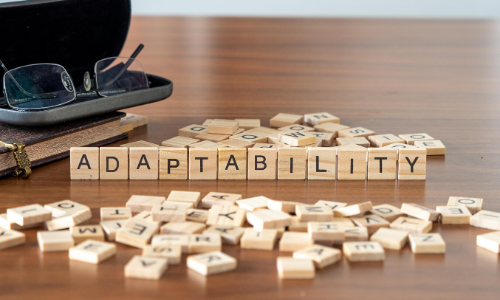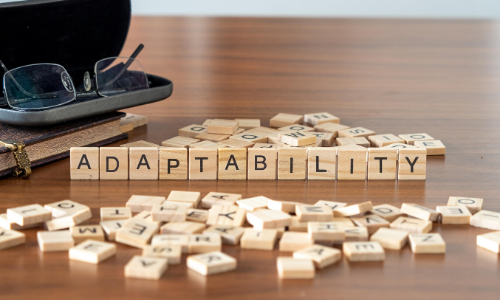Since COVID-19 (Coronavirus) abruptly halted our world on March 12th, change has become our only constant.

Ubiquitous in nature, this pandemic continues to alter daily life and cause wide-spread uncertainty about the future. Our world has never encountered such a medical crisis, and we’re all reeling to make sense of it.
From the time of the outbreak, we as a nation have tried to protect ourselves from its potential effects. We’ve collectively retreated to our homes to slow its spread. We’ve bolstered our food storages and, in the process, discovered the perceived value of toilet paper and bottled water. We’ve cancelled or suspended large-group functions, including traditional education, sporting events, religious services, and more. And just when these measures seem to be slowing the pandemic, it spikes somewhere, and we are again introduced to new or prolonged restrictions. Simply put, Coronavirus continues to throw us curve balls, forcing the government to continually reassess, redefine, and revamp the situation. It’s been a crazy few weeks, with potentially more of the same on the horizon.
As frustrating as this is, it’s important to keep these challenges in check. Years ago, our grandfathers engaged in active combat to protect our beloved country, and we’ve simply been asked to stay home. We could have it far worse, especially without Netflix, DisneyPlus, and FaceTime to alleviate our boredom. Our modern world is also fully equipped to support remote workstations, virtual communication, and online ordering. More than any other time in history, social distancing is possible.
Evangelical pastor Charles R. Swindoll once said, “We are all faced with a series of great opportunities brilliantly disguised as impossible situations.” Right now, Coronavirus is giving us the chance to reassess, redefine, and possibly revamp our personal situations. Perhaps this is the perfect time to adopt a new skill? Improve exercise routines? Or finish a neglected project?
This kind of personal realignment requires adaptability. Adaptable people live in the present and adjust freely to changes within their environments. They are flexible and handle disruptions with grace. Overall, they are typically happier than those who approach life with rigidity.
Try these simple suggestions to become more adaptable and, consequently, happier during times of uncertainty.
- Stay calm and carry on. Good things happen as we put one foot in front of the other. Adaptable people move forward even when they’re unsure of the destination. They recognize that all journeys lead to new circumstances. As Ralph Steadman said, “There’s no such thing as a mistake, really. It’s just an opportunity to do something else.”
- Bend or break. Flexibility is one the greatest strengths of an adaptable person. Flexible individuals are teachable, willing to learn and implement new ways of accomplishing a task. They also recognize that failure often leads to some of the best outcomes. JK Rowling said, “Failure is so important. We speak about success all the time, but it is the ability to resist or use failure that often leads to greater success.”
- Be creative. Creativity leads to innovation, and innovation makes for ingenious solutions. Creative minds defy established norms and break boundaries by thinking outside the box. They enjoy the challenge of finding ways to do things better. Rachel Wolchin said it best—“Creative people are the best kind of dangerous.”
- Change your tune. You’ve heard it before—the only thing you can control is your attitude. You cannot control the world or people around you, but you can control how you react to them. Adaptable people actively seek for hope and faith. Christine Caine poetically said, “Sometimes when you’re in a dark place you think you’ve been buried, but you’ve actually been planted.” Your attitude will directly determine the way you view your surroundings.
- Practice. Every successful entrepreneur, professional athlete, and accomplished musician knows this—practice makes perfect. Just like any skill, developing adaptability takes practice. It isn’t born overnight, and it demands a sustained effort. But it’s worth the work, because acquiring this skill will help us find an increased sense of calm in a world of chaos.
Contact us today to learn how PCIS can help your practice be increasingly adaptable during times of uncertainty.



